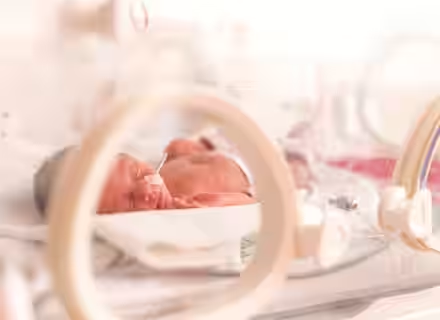Twin and multiple pregnancies carry additional risk to the mother and the babies and maternity units should categorise a mother as 'high-risk' to ensure she receives additional specialist care and monitoring.
Unfortunately, problems are more likely to arise during a twin pregnancy, particularly if maternity care falls below an acceptable standard and staff are not sufficiently trained to deal with complications. We specialise in birth injuries caused during the neonatal period and during labour, particularly those resulting in brain injury.
Complications that may arise with twin pregnancies include the risk of pre-term delivery which can lead to the need for special care in the neonatal unit.
Intrauterine growth restriction (IUGR) may occur during the later stages of the pregnancy when the placenta can no longer support the growth of the twins, which requires monitoring and active management.
Mothers are at an increased risk of developing pre-eclampsia and pregnancy induced hypertension, and placental abruption is more likely in a twin pregnancy. Placental abruption is where the placenta detaches from the uterine wall and it can cause serious harm to both mother and baby; when severe it is a medical emergency that requires urgent detection and delivery by caesarian section.
A specific problem that may present during a twin pregnancy is twin to twin transfusion syndrome.
TTTS affects identical twin pregnancies only, where the babies share a common monochorionic placenta but not an amniotic sac. The shared placenta contains abnormal blood vessels, which connect the umbilical cords and circulations of the twins. Depending on the number, type and direction of the connecting vessels, blood can be transfused disproportionately from one twin (the donor) to the other twin (the recipient). This transfusion causes the donor twin to have decreased blood volume, leading to slower than normal growth. The recipient twin becomes overloaded with blood, which puts a strain on this baby’s heart.
Treatment at or before 26 weeks gestation generally is by percutaneous fetoscopic laser coagulation where effectively arterio-venous connections are destroyed. If the condition is not picked up early, the consequences are serious and potentially life-threatening.
Fieldfisher is a proud legal partner of Twins Trust. The charity supports twins and multiples (and their families) by providing education, community support and by influencing public policy to ensure that the community's needs are met.
We are also honoured to support Footprints Baby Loss, which provides vital assistance to families who have endured the loss of a baby from a multiple pregnancy.


Our award-winning team believes in putting clients first. We are dedicated to achieving the best results possible and pride ourselves on our sensitive approach. Any of our twin pregnancy birth injury claims solicitors below will be pleased to discuss your case and offer free advice over the phone.














